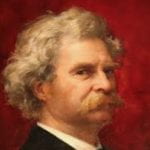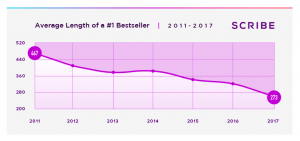Beta Readers are a great source for discovering faults in a draft manuscript, but a Writers Circle can add real value by providing advice on improving the impact of your novel on readers, and for giving encouragement from an author’s perspective. Writers value input from other writers. I recently asked a fellow writer to be part of my Beta Reader group. His input was especially helpful for identifying weaknesses in my plot. He also validated his impressions of my novel from his perspective as a writer. Now, I have the privilege of doing the same for his new novel and we have discovered the joy of forming a small Writers Circle. In conclusion, I have discovered that Beta Readers, and the added value of a Writers Circle, are key elements in helping take my writing to a new level. I appreciate their input – it is like gold to me as an author.
authors
Successful Authors
 “Successful authors are those who know just how difficult it is to write a book.” Stephen Fry
“Successful authors are those who know just how difficult it is to write a book.” Stephen Fry
“A man who is not born with the novel-writing gift has a troublesome time of it when he tries to build a novel. He has no clear idea of his story. In fact, he has no story.” Mark Twain
It starts with the fear of writing your first essay in English and submitting papers at college. When I look back on my time as a student, not one teacher was able or willing to give lessons on writing a novel or novella. At college, I was taught by professors who had published works, but they were mainly collections of poetry or scientific works. However, most of my teachers were willing to correct mistakes in my writing. If only they had taken the time to inspire writing? Our heroes were sporting stars and famous politicians or engineers, etc. Except for one, and he was significant—so much so, that I just have to tell you about him in the next post!
Easier to Trim or Add?
I watched one of those self-promoting videos in which there was a discussion on whether it is easier to trim words from a novel or add them. At first, I agreed with the notion that trimming was easier—after all, there is something immediate to work with. In my first novel, I found trimming easy to do as part of the editing process. This happened for me with my latest novel too.  However, and this is where I differ, once I have done a heavy edit and trim, I find it easier to add to the plot and, therefore, the text. Like the tide creeping in, my additions give more depth. I guess others prefer to work the other way (and reduce their lengthy manuscript). To summarise:
However, and this is where I differ, once I have done a heavy edit and trim, I find it easier to add to the plot and, therefore, the text. Like the tide creeping in, my additions give more depth. I guess others prefer to work the other way (and reduce their lengthy manuscript). To summarise:
- My draft manuscript finished at 76,000 words
- Trim/Edits dropped the word count to 74,000 words
- Adding more plot detail and two more chapters for improved depth of plot, etc. lifted the word count to 84,500. The key lesson is to let your manuscript be open to the changing tide of thought, refinement and additions. The words may go out and drain the book length; or come back in—often with crashing waves of inspiration—to enhance your writing and complete it. Only you will know for sure when the landscape of your novel looks best. For some, it is when the tide has gone out; for others (like me), it is when the tide is in and covering the early draft.
Average Book Length is Hardly Average
In an earlier post, I discussed book lengths. An interesting aside—when researching this topic on the internet, pay close attention to the date of the article or discussion. Here’s why:

You will notice that this research, based on the New York Bestseller list (see full article here) shows a very clear trend down from 467pp (in 2011) to 273 (in 2017)! In my new thriller, my draft manuscript hovered around 74,000 words. Now, following severe editing and adding critical plot and character details, it is sitting at 82,000 words. At this count, the book feels ‘right’. What do I mean by feel? I mean exactly that. Pick up a 74,000 word book and it feels a bit on the thin side. Now, try the 82,000 word novel and it has a good heft; a sense of substance, and I know I will be reading a story with a well—developed plot and depth of detail. Of course, this assumes that the story is well—written, and the plot exciting, with many twists and turns.
Ideas bigger than your life!
I came across a wonderful quote recently, by Gloria Gaither. She said, “You need to have ideas bigger than your life.” How profound and how ideal to sum up a writer’s goal. Novels, like paintings, can lift us above the ordinary and create worlds far bigger than our own lives; far longer than our histories and far removed from our world. Thank you, Gloria, for inspiring us to have ‘Ideas bigger than our lives’!
Length of Time to Create a Work of Art
 How long does it take to paint a remarkable painting? How long does it take to produce a reasonable novel? Well, it took Leonardo da Vinci begins four years to paint the Mona Lisa and 30 layers of paint were applied. Michelangelo began work on his famous Sistine Chapel ceiling in 1508. He worked for four years before completion. To write a novel takes anywhere from a few months to several years. Of course, some artists work very quickly – Picasso finished Guernica in 35 days, which may equate to just ten or twenty chapters for a novelist. In many ways, authors are the poor cousins of painters. Authors have fewer works, their works can’t be ‘seen’ and sold immediately on that basis. Authors will struggle to get their work put into the public arena and few authors can now breakthrough the iron-clad ring of rejection that protects the domain of literary agents and publishers. A recent statistic suggested that one in 10,000 writers will get their work accepted by a traditional publisher. Yet, the passion to write is strong and the desire to tell a story remains one of the most noble arts of all. Churchill encouraged us to “never give up” so we keep going, hopeful that even a small audience will enjoy a story that had to be told.
How long does it take to paint a remarkable painting? How long does it take to produce a reasonable novel? Well, it took Leonardo da Vinci begins four years to paint the Mona Lisa and 30 layers of paint were applied. Michelangelo began work on his famous Sistine Chapel ceiling in 1508. He worked for four years before completion. To write a novel takes anywhere from a few months to several years. Of course, some artists work very quickly – Picasso finished Guernica in 35 days, which may equate to just ten or twenty chapters for a novelist. In many ways, authors are the poor cousins of painters. Authors have fewer works, their works can’t be ‘seen’ and sold immediately on that basis. Authors will struggle to get their work put into the public arena and few authors can now breakthrough the iron-clad ring of rejection that protects the domain of literary agents and publishers. A recent statistic suggested that one in 10,000 writers will get their work accepted by a traditional publisher. Yet, the passion to write is strong and the desire to tell a story remains one of the most noble arts of all. Churchill encouraged us to “never give up” so we keep going, hopeful that even a small audience will enjoy a story that had to be told.
Writers’ Envy?
I was speaking with my accountant about my book – in the hope that he would be as excited as me about the $$$ signs that would follow. “Oh, it seems that everyone is writing a book these days!” was his response. My hopes were dashed. “Yes,” he continued, “I have lots of clients who are claiming expenses for their books.” Then he rattled off a list of names, including some that I knew. My lawyer was just publishing his second novel and a teaching colleague was editing his. And here I was, battling to get the plot sorted for my own new novel. Alas, I put my despondency down to “writers’ envy” – a condition where an author is overwhelmed by writers more prolific and successful than themselves. “Stop it!” I told myself, “There is no point in comparing yourself with others. Just stick to the task and enjoy the pleasure of writing in the way, and with the pace, that you want to.” It was good advice for myself!
